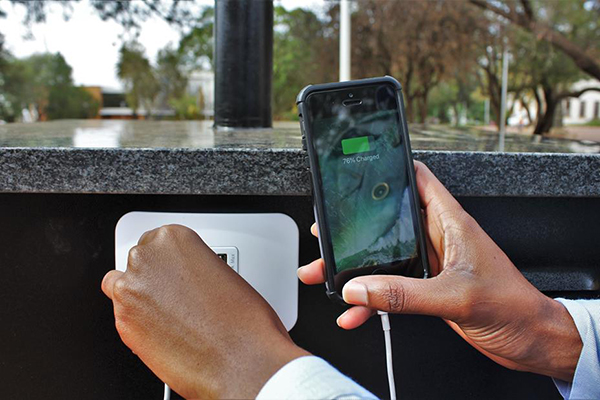Latest News Archive
Please select Category, Year, and then Month to display items
14 June 2024
|
Story Anthony Mthembu
|
Photo Suplied
 Jeremiah Hlahla, a UFS student completing his PhD in Botany at the University of Debrecen as part of an exchange initiative funded by the Erasmus+ Mobility Programme.
Jeremiah Hlahla, a UFS student completing his PhD in Botany at the University of Debrecen as part of an exchange initiative funded by the Erasmus+ Mobility Programme.
As part of an exchange initiative facilitated by the Erasmus+ Mobility Programme, Jeremiah Hlahla, a student at the University of the Free State (UFS), is nearing the completion of his PhD studies at the University of Debrecen in Hungary. Hlahla’s journey, which began in February 2024 and is set to conclude in July 2024, has been a remarkable learning opportunity. “As a first time-traveller to Europe, I have thoroughly enjoyed engaging with people from different countries and cultures,” he said.
The benefits of international collaboration
Hlahla is currently pursuing a PhD in Botany, focusing on plant stress physiology. “My current PhD project investigates the physiological, biochemical and morphological responses of vegetable-type soybean, or edamame, to combined drought and heat stress,’’ he explained. He considers the University of Debrecen the ideal institution to complete his research due to its extensive expertise and resources in similar projects. He noted that his colleagues at Debrecen conduct significant work on plant protection against biotic and abiotic stresses, including salt and drought stress, as well as proteins and amino acids in barley and other legumes.
Given the vast knowledge available on similar projects, Hlahla has found substantial engagement with his work at the University of Debrecen. “Upon arrival, I delivered an introductory lecture presenting my UFS project on the synergistic effects of combined drought and heat stress on the physiology and biochemistry of edamame. It was an engaging session as everyone could relate to my work and asked many questions,’’ he said.
Insights gained from the exchange
Hlahla has also gained valuable lessons that will assist him in his research career, including biotechnology and physiology tools. “I learned how to prepare samples and use high-performance liquid chromatography (HPLC) and reversed-phase ultra-high-performance liquid chromatography (UHPLC) to quantify proteins and amino acids,’’ he said. These techniques are beneficial not only for his current work but will also support future soybean research.
As his experience at the University of Debrecen nears its end, Hlahla reflects on the collaborations and friendships he has formed, which stand out as a significant highlight.
First solar charging station launched at UFS
2017-11-13

Students can now charge their phones at the first solar charging station
on the Bloemfontein Campus.
Photo: Moeketsi Mogotsi
On Friday 10 November 2017, the first solar charging station (600watts) was launched on the Bloemfontein Campus. This unit will be used by students to charge their phones and Ipads. It is the first of nine units to be installed on all three campuses; five on the Bloemfontein Campus and two each on the South and Qwaqwa Campuses.
Team effort results in great outcome
The project was a collaborative effort between the UFS and FCE Consulting Engineers. Coenie van der Merwe, Prototype Design Engineer, played a vital role in designing the charging unit. Anton Calitz, Electrical Engineer in University Estates’ Department of Facilities Management, says, “We are hoping that by the first quarter of 2018, we would have rolled out the remaining eight charging units.”
Project to enhance sustainability and address student needs
Prof Nicky Morgan, former Vice-Rector: Operations, says, “This should be a symbol of affordable opportunities that will both save the planet and enhance financial sustainability.” Nico van Rensburg, Senior Director of University Estates, says, “This renewable energy project is an innovative way of addressing student needs.”
However, students are advised not to charge other electrical appliances at the charging stations besides their phones and Ipads, as this may cause the charging unit to trip.
The UFS was recently awarded for its contribution towards sustainability. This was in recognition of its amazing initiative to install and operate photovoltaic (PV) and greywater systems on all three of its campuses.